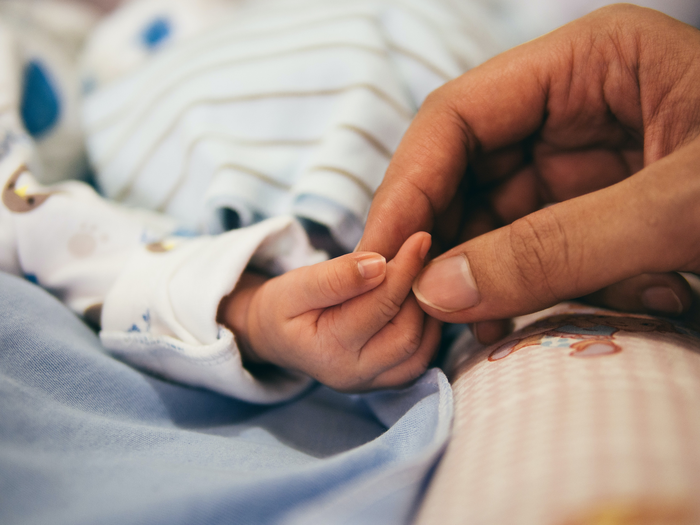Having a COVID-19 vaccine doesn’t impact a couple’s chances of becoming pregnant—but skipping the shots and landing a coronavirus infection might reduce male fertility.

Credit: Photo by Aditya Romansa on Unsplash
Having a COVID-19 vaccine doesn’t impact a couple’s chances of becoming pregnant—but skipping the shots and landing a coronavirus infection might reduce male fertility.
Those are the findings in a paper published in the American Journal of Epidemiology by researchers at the Boston University School of Public Health. In a study of couples trying to conceive, they found no association between COVID-19 vaccination and the likelihood of conception in female or male partners who received the Pfizer-BioNTech, Moderna, or Johnson & Johnson vaccines.
“Many reproductive-aged individuals have cited concerns about fertility as a reason for remaining unvaccinated,” says Amelia Wesselink, an SPH research assistant professor of epidemiology and the study’s lead author. The vaccination rate among pregnant people has remained stubbornly low in the United States, despite new data suggesting that being unvaccinated increases the chances of a miscarriage or of a baby dying within the first month of life.
“Our study shows, for the first time, that COVID-19 vaccination in either partner is unrelated to fertility among couples trying to conceive through intercourse,” says Wesselink. “Time-to-pregnancy was very similar regardless of vaccination status.”
COVID Reduces Male Fertility, Vaccines Don’t
Wesselink and her team analyzed survey data on COVID-19 vaccination, infection, and fecundability—the probability of conception per menstrual cycle—among female and male participants in the SPH-based Pregnancy Study Online (PRESTO). An ongoing National Institutes of Health–funded study that enrolls women trying to conceive, PRESTO follows subjects from preconception through six months after delivery. Participants included 2,126 women in the United States and Canada who provided information on sociodemographics, lifestyle, medical factors, and characteristics of their partners from December 2020 to September 2021. The participants were followed in the study through November 2021.
Fertility rates among female participants who received at least one dose of a vaccine were nearly identical to unvaccinated female participants. They were also similar for male partners who had received at least one dose of a COVID-19 vaccine compared with unvaccinated male participants. Additional analyses that considered the number of vaccine doses, brand of vaccine, infertility history, occupation, and geographic region also indicated no adverse effect of vaccination on fertility.
While COVID-19 infection was not strongly associated with fertility, men who tested positive for COVID within 60 days of a given cycle had reduced fertility compared to men who never tested positive, or men who tested positive at least 60 days prior. This supports previous research that has linked COVID-19 infection in men with poor sperm quality and other reproductive dysfunction.
“These findings provide reassuring evidence that COVID vaccination in either partner does not affect fertility among couples trying to conceive,” says Lauren Wise, an SPH professor of epidemiology and a senior author on the study. She says the study’s results are robust, because PRESTO “enrolls participants before pregnancy, collects data on vaccination and other variables during the preconception period, and then collects data on subsequent fertility after enrollment”—what scientists call a prospective study. A large study size and geographic diversity were also strengths, says Wise, “as was our control for many variables, such as age, socioeconomic status, preexisting health conditions, occupation, and stress levels.”
COVID Vaccines and Menstruation
Wise’s research team is also using the PRESTO data to look for evidence that COVID vaccines impact menstruation—many women have anecdotally reported changes to their periods after receiving a shot. She says the latest fertility findings should help quell concerns that any short-term changes to the menstrual cycle impact the ability to conceive; Wesselink and Wise hope to publish results from the menstruation study this spring.
Given her research, as well as other studies finding no links between vaccination and adverse pregnancy outcomes, Wise’s advice for anyone aiming to start a family is to get a shot.
“There’s a wealth of information that COVID infection has…a harmful impact on pregnancy outcomes and birth outcomes,” Wise recently said on BU Today’s Question of the Week podcast. “Taking into account all the available information right now…I think the evidence is weighing for vaccination.”
Journal
American Journal of Epidemiology
DOI
10.1093/aje/kwac011
Article Title
A prospective cohort study of COVID-19 vaccination, SARS-CoV-2 infection, and fertility
Article Publication Date
20-Jan-2022




